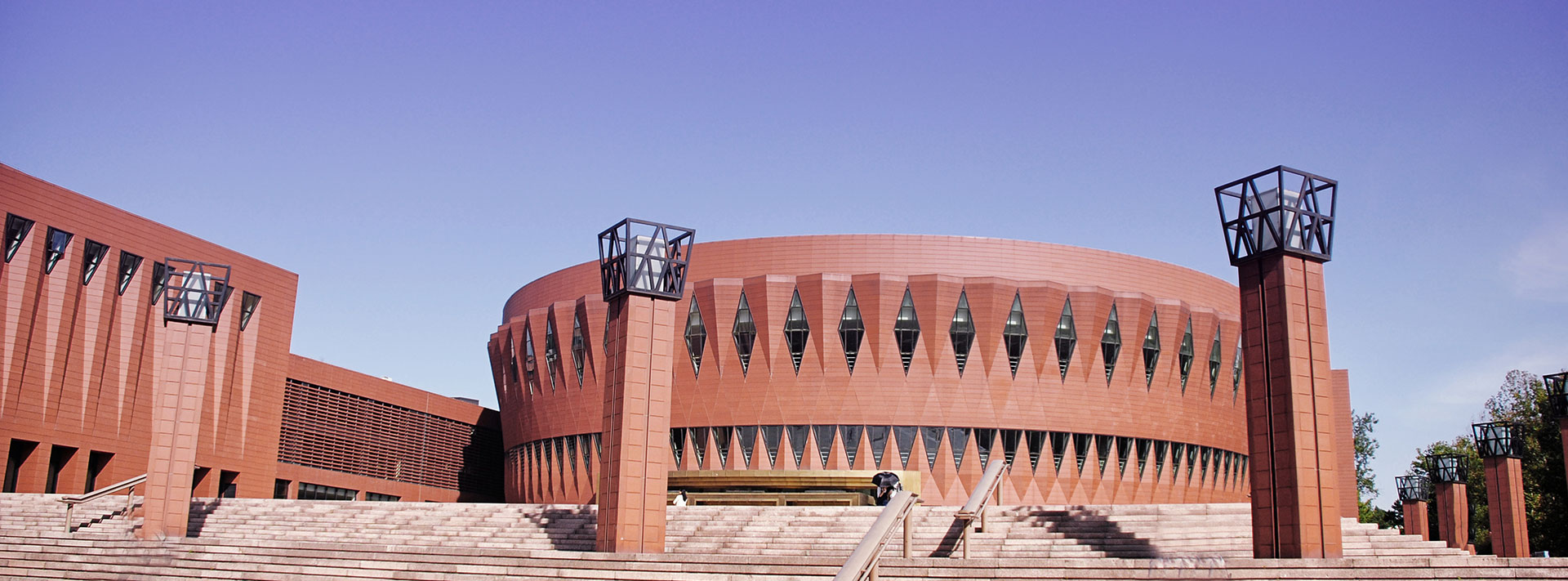To further enrich the related research results of “State Governance of Major Powers”, the Tsinghua Institute for Governance Studies launched the “Frontier Forum on State Governance of Major Powers”, inviting experts and scholars from various disciplines and fields from time to time to provide useful decision-making reference and theoretical support for promoting the modernization of the state governance system and governance capacity through academic discussions or exchange of practical experience.
On March 24, 2024, the second activity of “Frontier Forum on State Governance of Great Powers” was held in Tsinghua University. Professor Benjamin Liebman (Li Ben), a famous researcher of Chinese law and Robert L. Lieff Chair Professor of Columbia University Law School, delivered a keynote speech entitled “Transparency of American Courts: New Challenges and Problems”.
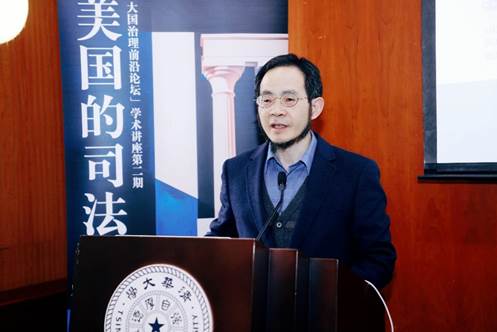
At the beginning of the lecture, Professor He Haibo of the Tsinghua School of Law, who was moderator of this forum, pointed out that the strategic thought of state governance of great powers reflects President Xi Jinping’s profound thinking on the modernization of the state governance system and governance capacity. It was an honor to invite Professor Liebman to deliver an academic report on the transparency of American courts to further and better promote academic exchanges between Chinese and American scholars. Professor He Haibo extended a warm welcome to Professor Liebman and introduced all the guests present.
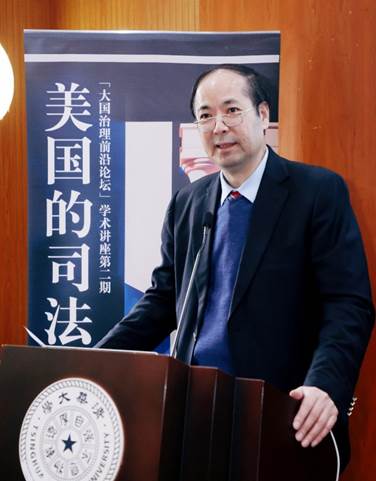
Lin Laifan, a professor at the Tsinghua School of Law and Deputy Director of the Tsinghua Institute of state governance, delivered a welcome speech for this forum. On behalf of the Tsinghua Institute for Governance Studies and the Research Center for Public Law of the School of Law, Lin Laifan extended a warm welcome and heartfelt thanks to Professor Liebman and all the distinguished guests. He pointed out that judicial justice is of great significance to state governance, as it is the last line of defense to safeguard social equity and justice. Judicial openness, as a prerequisite for judicial justice, is a topic highly concerned in China today. Thus the theme of this forum has profound theoretical and practical significance. In particular, Professor Lin described the forum as a transnational, interdisciplinary and cross-boundary academic activity with important academic value, and non-governmental exchange activities between Chinese and American scholars like today are of even greater significance.
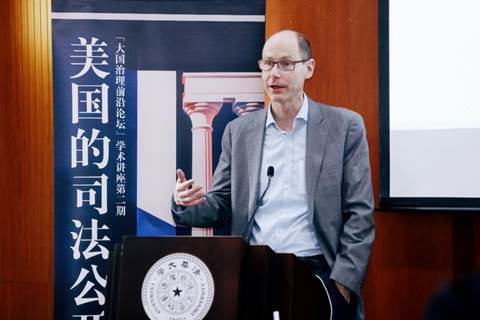
As the forum started officially, Professor Liebman first pointed out that as a matter of fact there is no single definition of judicial transparency in the United States, which at least includes the court’s public judgment documents, litigation documents submitted by the parties in action, all materials related to the cases, the media and the public’s right to participate in the judicial process, and citizens’ basic right to know about the operation of the government (including the court). Because the United States is a federation, the mechanisms of implementing judicial transparency at the federal court and state court levels are different. Why should justice be made public? First, the public has the right to access information; second, make the court responsible; third, reduce information imbalance; fourth, promote mediation and improve efficiency. Regarding the history of judicial openness, Professor Liebman pointed out that court documents are always open in the United States. In history, the common law endowed citizens with the right to consult judicial records, while the First Amendment gave citizens the right to consult criminal proceedings. The United States is more concerned about how to make justice public, and after the 1990s, in particular, the country needs to start to address the new problem of how to make justice public in the digital age.
Next, Professor Liebman introduced the judicial transparency of the federal court and state courts in the United States, analyzed some recent litigation cases about judicial transparency in the country, and explained the current two conflicting views about judicial transparency in the United States, inadequate transparency and excessive transparency. He pointed out that on the whole, compared with other Western countries, the wide application of the discovery procedure in the United States has obviously led to more publicly available information, while some European countries only disclose the final judgment but not other relevant materials of a case. In recent years, some European countries have made many new progress in judicial transparency. For example, the United Kingdom is building a new centralized database, and France claims that all judicial decisions will be made public by 2025.
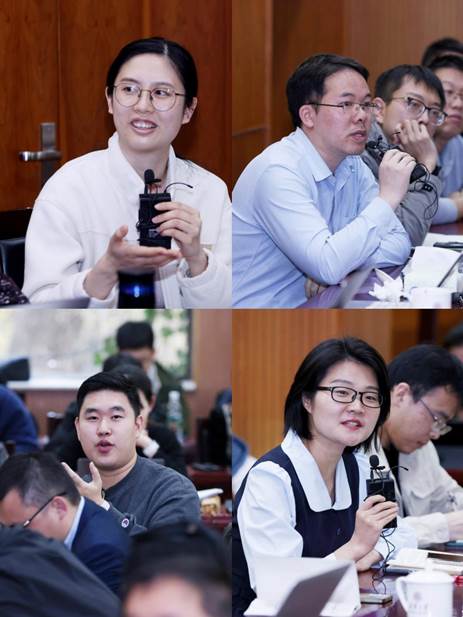
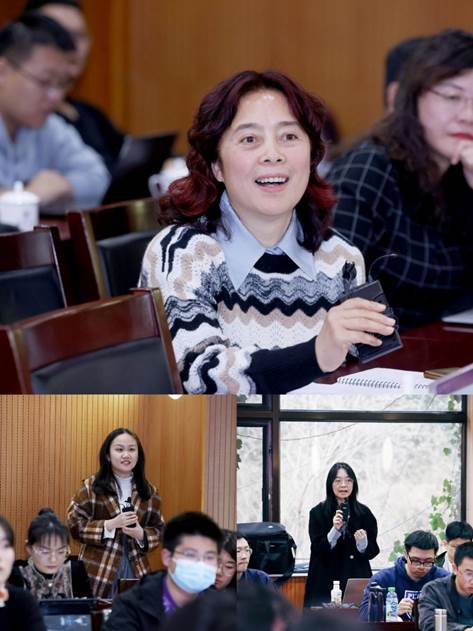
After the keynote speech, the audience responded enthusiastically, asking questions about the specific situation of judicial openness in the United States, and interacting frequently with Professor Benjamin Liebman.
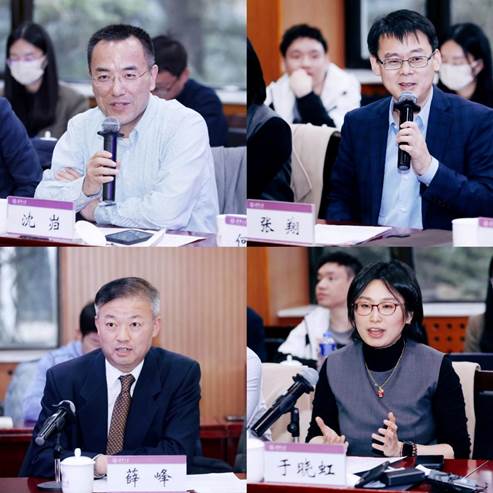
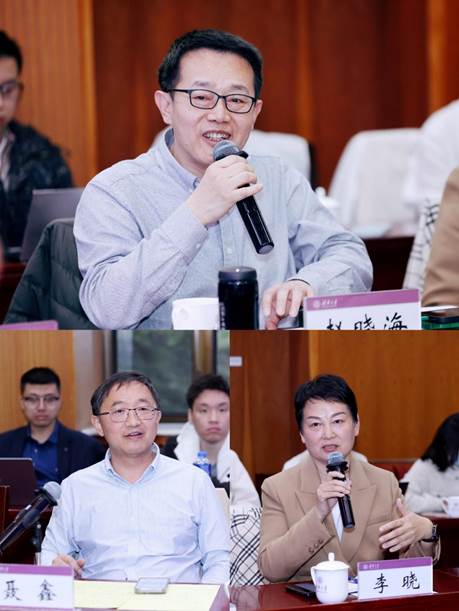
In the following conversation, Professor Shen Kui and Professor Zhang Xiang from Peking University Law School, Vice President Xue Feng from the Beijing Financial Court, Associate Professor Yu Xiaohong from the School of Social Sciences School, Tsinghua University, General Manager Zhao Xiaohai, founder of pkulaw.com, Professor Nie Xin from the School of Law, Tsinghua University, and Ms. Li Xiao, Secretary-General of the Chinese Judicial Studies Association, offered their unique insights on judicial openness based on their own research and work experience.
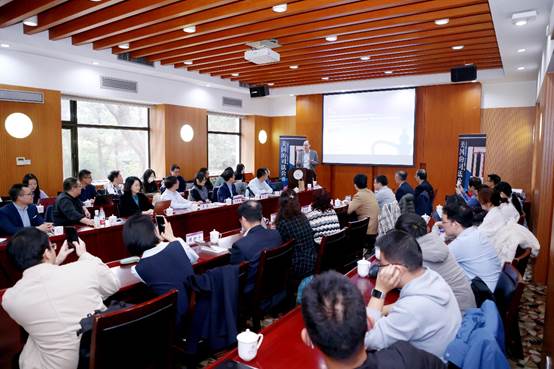
After the guests finished their speeches, Professor Benjamin Liebman briefly responded to some of the questions. He believed that the biggest challenge facing the United States in judicial openness now is not how the courts make it public, but how to deal with the commercialization of relevant information by companies. He pointed out that as big data analysis is not the only method, the future legal empirical research in China should focus on the combination of big data analysis and investigation.
Finally, Professor He Haibo thanked Professor Liebman and all the speakers for their wonderful speeches, pointing out that this forum had enabled us to know more about the situation of judicial openness in the United States and have more confidence in the future of judicial openness in China. In the future, we need to do more research on the specific boundaries, technologies and methods of judicial openness.
Also present on the forum were students from several universities and research institutes such as Tsinghua University, Peking University and the Renmin University of China. The atmosphere was cordial, with frequent exchanges and interactions.


